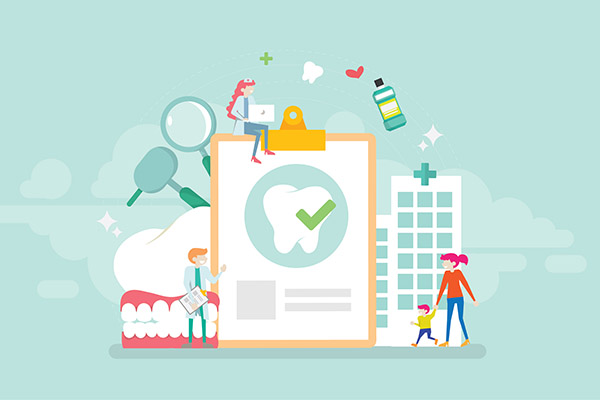Seek an Emergency Dentist After a Dental Injury

Medical hospitals are often unequipped to handle dental emergencies; this is when an emergency dentist becomes necessary. Recognizing the signs of a dental emergency is important for patients to get the help they need right away. Once patients know they are dealing with a dental emergency, they can look up “emergency dentist near me” instead of going to the ER. It is important that dental emergencies are handled right away so that they do not become bigger issues.
What are the signs of a dental emergency? Some concerns may be more apparent than others. This article will outline several different types of dental emergencies so patients can find out if what they are dealing with is, in fact, a dental emergency and they need a dentist right away. It is important that people have a clear understanding of a dental emergency so that they do not put off seeking help right away.
Loosened or knocked-out teeth
Everyone knows that adults are not supposed to lose teeth as children do. If a person notices that one of their teeth has become loose, it may be a sign of tooth or gum injury. Sometimes, a loose adult tooth could indicate nerve damage, which does not always cause pain or discomfort right away.
Teeth that become loose due to trauma to the mouth from something like an accident or a sports injury should also be considered an emergency. Although the person may not feel severe pain, a knocked-out tooth can lead to more dental issues down the line. For example, surrounding teeth may begin to shift into that vacant space over time, and this causes misalignment of the teeth and jaw.
If a person notices loose teeth, even if pain is not present, they should consult a dentist right away to learn how they should handle the next steps for treatment. How the tooth became loose will likely determine how it should be treated and whether or not it is an emergency.
Broken, chipped, or cracked teeth
Sometimes, mouth trauma causes a tooth to break, chip, or crack. Even a minor crack or chip can cause complications such as fever, sensitivity in the affected tooth or gums, swelling in the gums, and even pain that spreads down into the neck.
There are a number of procedures a dentist can perform to fix a broken, chipped, or cracked tooth before the condition gets worse. If the crack is minor, a dentist may be able to bond the tooth or cover the damaged area with a dental crown. In more severe cases, it may be necessary to perform a root canal or extraction in order to prevent nerve or root damage.
Severe toothache or gum pain
A severe toothache can be a symptom of several dental issues, such as an undetected crack or tooth decay. A dental abscess can also cause tooth pain. Dental abscesses develop when bacteria grow in the tooth, often starting in a cavity and spreading to the soft tissues and sometimes even into the bones of the face and neck.
Lingering pain in the gums or bleeding when flossing or brushing is usually a sign of gum disease that should be treated right away. Mild gum disease can be treated more simply.
Broken jaw
For a broken jaw, patients will need to go to the hospital for it to be evaluated, but an emergency dentist will be who treats it. If the patient develops symptoms like a swollen tongue that makes it hard to breathe, go to the nearest emergency room.
It is important to get a broken jaw properly treated because letting it heal on its own can cause misalignment and make it harder to chew and speak.
Bitten tongue or lip
If a person finds that the bleeding from a bitten tongue or lip does not stop after 15 minutes of applied pressure, call a dentist. If the dentist finds that the laceration is severe, they may refer the patient to the emergency room for additional help.
Seek help for dental emergencies
If a person is unsure if their dental issue is an emergency, it is always a good idea to seek the guidance from professionals. Contact a dentist right away to learn if the situation warrants a visit to the ER or if a simple in-office visit will do. Handling emergencies quickly and effectively ensures proper healing and recovery for the patient.
Request an appointment here: https://drdavidbrumbaugh.com or call R. David Brumbaugh, DDS at (214) 306-4402 for an appointment in our Dallas office.
Check out what others are saying about our dental services on Yelp: Emergency Dentist in Dallas, TX.
Related Posts
Dental problems can happen at any time and often require immediate help to relieve pain and avoid potential complications. If you have urgent dental concerns, you might look for an emergency dentist or a same day dentist. Knowing the difference between these dental professionals can help you choose the best option for your needs.An emergency…
Pain or discomfort in your mouth might call for an emergency dentist. Emergency dentists often treat cracked or broken teeth, knocked-out teeth, and severe mouth pain. Some swollen jaws are considered dental emergencies as well. Read on to learn what constitutes a swollen jaw emergency and how emergency dentists can help.If the swelling in your…
An emergency dentistry office is accustomed to repairing trauma to teeth. This is one of the most frequent types of reasons why patients go. If you have had an accident and hurt one or more teeth, call an emergency dentist near you. Though you may be in pain and have risks for further problems, you…
A general dentist plays an essential role in maintaining lifelong oral health by providing preventive, restorative, and cosmetic care for patients of all ages. While specialists focus on particular aspects of dentistry, a general dentist provides a wide range of services to address routine needs and detect issues early. Understanding what distinguishes a general dentist…


